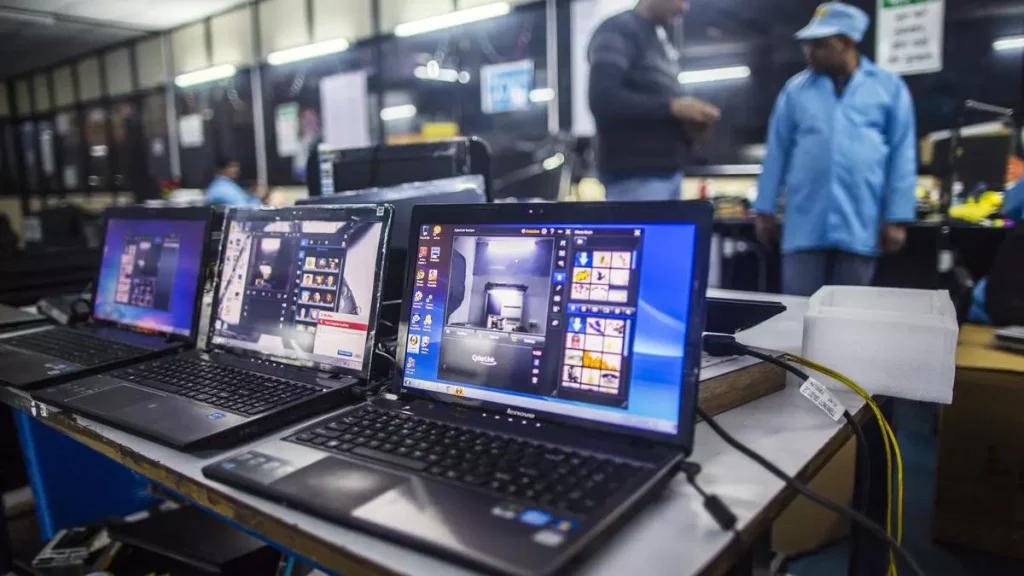In a bid to navigate the challenges posed by supply chain disruptions and soaring demands, tech giants like Apple, HP, and Dell have jointly called for an extension of the laptop import restriction deadline by a year. The looming deadline, which has put pressure on laptop manufacturers to meet import criteria, has prompted industry leaders to unite and present a compelling case for an extended timeframe.
A Crucial Appeal
The consortium of prominent tech companies, led by Apple, has submitted an urgent appeal to the relevant authorities, highlighting the unprecedented global circumstances that have severely impeded the timely import of laptops. This collective plea emphasizes the persistent scarcity of essential components and materials required for laptop production, a predicament that has hindered manufacturers’ ability to fulfill import obligations within the stipulated timeframe.
Navigating Unforeseen Challenges
The ongoing global chip shortage, coupled with disruptions in logistics and transportation networks, has caused a ripple effect across various industries. In this context, the tech giants contend that an extension is imperative to mitigate the adverse impact of these challenges. Without additional time, the current import restriction deadline would exacerbate supply shortages and potentially lead to inflated prices, ultimately affecting consumers and businesses alike.
Industry-wide Collaboration
Apple, HP, Dell, and other influential players within the technology sector have set aside competitive differences to address this common issue. The proposed extension, if granted, would not only offer respite to laptop manufacturers but also foster a spirit of collaboration that could potentially reshape how industry rivals approach challenges collectively. This move underscores the gravity of the situation and the shared commitment to ensuring the stability of the laptop market.
Government Deliberations and Consumer Impact
Government authorities, who hold the key to granting the requested extension, are carefully considering the tech consortium’s appeal. While ensuring a fair balance between industry needs and consumer interests, officials are evaluating the broader implications of an extension on the tech market and the economy at large.
Consumer Advocacy
Consumer advocacy groups have expressed support for the potential extension, asserting that it could prevent artificial price hikes and maintain accessibility to essential technology. The pandemic-driven surge in remote work and learning has underscored the vital role laptops play in modern life. Therefore, a prolonged restriction deadline could help stabilize prices, making laptops more attainable for students, professionals, and families.
Balancing Act
Amid these discussions, policymakers face the intricate task of safeguarding both economic interests and public needs. Striking the right balance is crucial to prevent undue strain on laptop manufacturers while ensuring that consumers are not disproportionately affected. As the deliberations continue, industry observers are keenly watching for signals of potential market shifts and the impact on various stakeholders.
The Path Ahead
As the collective plea for an extended laptop import restriction deadline awaits official consideration, the tech industry braces for potential changes that could reshape market dynamics. The unity displayed by industry leaders underscores the shared dedication to maintaining stability in a rapidly evolving landscape. Whether the appeal results in a year-long extension or alternative measures are adopted, the outcome will undoubtedly have far-reaching consequences for the tech sector and consumers worldwide.
In conclusion, the joint efforts of tech giants to secure an extension for the laptop import restriction deadline highlight the exceptional challenges faced by the industry. The proposed extension reflects a collaborative spirit that transcends competition, focusing on the greater good of ensuring consistent access to laptops for all segments of society. As deliberations unfold, the world watches to see how this plea for an extension will shape the future of laptop manufacturing and consumption.

